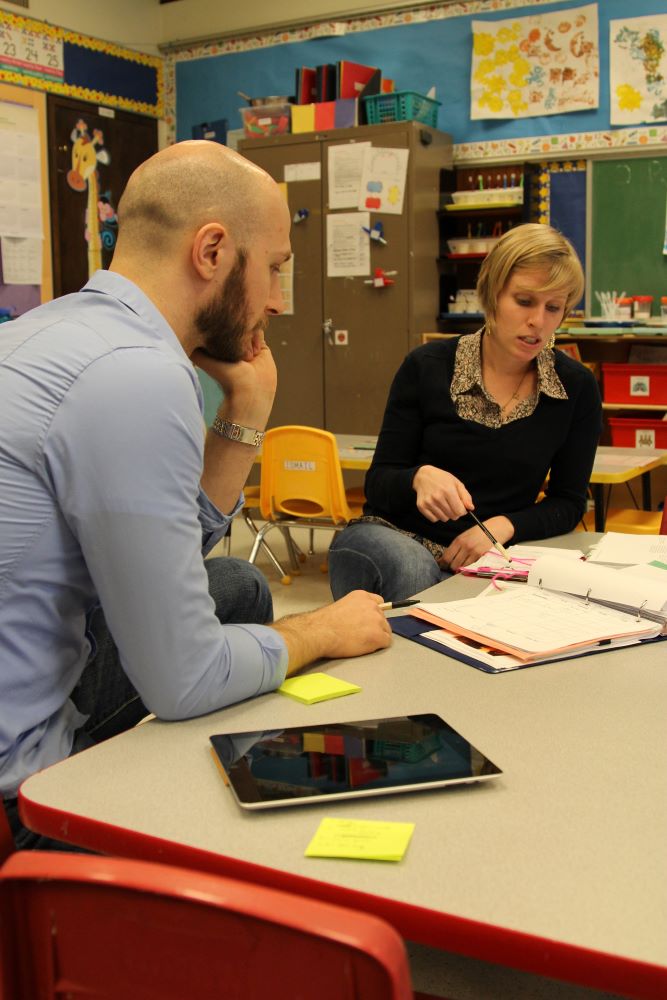 Reflection is an important part of both planning for children’s learning and implementing those plans. Even if everything goes as planned, there are things to consider. As education staff implement their plans with children and families, they continue to observe and document what happens. They ask questions such as, “How did it go?” “What worked well and why?” “What didn’t work and why?” and “What changes could be made?” They may ask themselves these questions in the middle of trying a new experience or interaction or as they reflect on how the day, week, home visit, or group socialization went. These questions are also appropriate to ask colleagues and families to get their input.
Reflection is an important part of both planning for children’s learning and implementing those plans. Even if everything goes as planned, there are things to consider. As education staff implement their plans with children and families, they continue to observe and document what happens. They ask questions such as, “How did it go?” “What worked well and why?” “What didn’t work and why?” and “What changes could be made?” They may ask themselves these questions in the middle of trying a new experience or interaction or as they reflect on how the day, week, home visit, or group socialization went. These questions are also appropriate to ask colleagues and families to get their input.
With program support for reflection and planning time, staff might consider the following:
- Observations and documentation related to individual children’s development and learning goals, including Individualized Family Service Plan goals for children with disabilities
- Observations and documentation related to children as a group (group care settings, group socializations)
- Parts of the group care or home visiting plans that went well; what worked and why
- Parts of the group care or home visiting plans that did not go as expected; what did not work and why
- Changes for the next day in schedules, routines, learning experiences, transitions, responsive teaching practices, and group care environment
- Changes for the next home visit in interactions with parents, pace of the visit, learning experiences and materials
- Changes for the next group socialization in interactions with parents, flow of socialization activities, learning experiences and materials for children, adult learning experiences and opportunities for parents to network
- Engagement of parents and family members—what is going well and what might need to be changed
As staff reflect, they might do one or more of the following:
- In group care settings
- Consider individual children’s needs. For example, does an infant need extra one-on-one time because he is teething? Does a toddler need more challenging materials to build with? What should be adjusted?
- Review individualized infant schedules or weekly group lesson plan to see what to adjust.
- In home visit settings
- As part of joint planning with parents to support their children’s development and learning, share observations about the child and his interactions and encourage parents to share their observations and perspectives.
- Review home visit plans to decide what to adjust for the next home visit.
- Review group socialization plans and decide what to adjust for the next socialization.
Read more:
Resource Type: Article
National Centers: Early Childhood Development, Teaching and Learning
Age Group: Infants and Toddlers
Audience: Directors and Managers
Last Updated: September 12, 2024